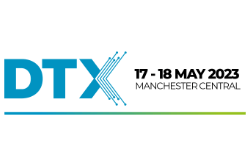Paris is serious about startups. From Emmanuel Macron pledging to transform France into a nation of entrepreneurs to the surge in VC investment sweeping the country, it’s safe to say something is brewing on the other side of the English Channel. “We’re seeing the beginning of a cultural shift,” says Tamara Brisk, general director France at WiredScore, the real-estate-rating company. “A few years ago, if you worked at a startup it meant you weren’t good enough to work at one of the big companies like L’Oréal.” But as French entrepreneurs have begun to flex their muscles, more people have ditched established behemoths in favour of joining the revolution. “Suddenly it has become a legitimate choice for France’s best and brightest to join a startup,” says Brisk.
Given it was only a few years ago people like Oussama Ammar, co-founder of The Family, the French incubator, openly declared the country to be toxic for entrepreneurs, the cultural turnaround is simply astounding. “It’s incredible,” says Jérôme Lecat, CEO and co-founder of Scality, the storage-software startup. “I’ve been an entrepreneur for the past 25 years and the progress made in the last five is nothing short of exceptional.” Indeed, between 2012 and 2015 the number of French startups launched jumped by 30% to 9,400, according to La French Tech, the French government’s initiative to champion the country’s startups. “All this creates an exceptional dynamism, which becomes a self-fulfilling prophecy making it easier to succeed and succeed big,” says Lecat.
One reason for this surge is thanks to many VCs having reconsidered their previous opinion that the French ecosystem wasn’t worth their attention. “People are more willing to invest,” says Gregory Gazagne, executive president EMEA at Criteo, the ad-tech unicorn. The numbers certainly back him up: last year saw French startups complete 590 rounds raising a total of $2.7bn, up from $768m in 2014, according to a report from Atomico, the VC firm. This upswing means that France is now seriously challenging the two countries usually considered to be the European leaders in terms of attracting VC investment: the UK, which raised $3.7bn in 2016, and Germany, which raised $2.1bn. “And the more success stories we have, the more they’ll invest,” says Gazagne.
However, while this influx of capital is stellar news for entrepreneurs looking to launch their enterprises into orbit, there is still a limit to how much people are willing to invest in French ventures. “It’s very challenging for French companies to raise later rounds,” says Brisk. “One reason is that compared to the Germans, the French speak very bad English.” She argues that the linguistic and cultural divide combined with lingering doubts about startups being able to thrive in France have held back foreign VCs from investing in huge scaleup rounds. “You have to overcome all that to convince investors,” says Brisk.

But, oddly, Brexit may change that. “I actually think it’s one of the reasons why we’re having a very exciting moment in France,” says Brisk. While French startups have previously moved abroad to get closer to investors and raise bigger rounds, the decision for the UK to leave the EU has meant that London may soon no longer have access to the single market, making the British option potentially less attractive for French entrepreneurs. In fact, the mayor of Paris is betting on it, having launched a charm offensive in February to persuade the roughly 300,000 French people living in London to return home. “There are a lot of French people sitting in London or New York who just need a little nudge to come home,” says Brisk. “And Brexit is a great opportunity to do that because it’s no longer that easy for French founders to transition to London.”
And while some entrepreneurs may previously have been unwilling to up sticks from London, the election of Macron may persuade them to take a chance on Paris. “He comes from the finance industry and has an entrepreneurial mind himself,” says Lecat. “This is great for our startup ecosystem.” Having made no secret about his vision to turn France into a startup nation, the new president ran on a manifesto packed with pro-business measures like slashing corporation tax and exempting the ownership of company stakes from the wealth tax. And this summer he introduced an entrepreneur visa, which would enable foreign talent to come and work in France for up to four years. “Everything he’s done so far goes in the right direction,” says Lecat.
Additionally, not only has the president has introduced the visa but Macron has also endeavoured to make it easier for startups to source talent by rewriting French labour laws. “It used to be very scary to hire people,” says Brisk. “It was like getting married, you really had to mean it when you hired someone.” From strict legislation giving workers a three-month notice period to the risk of paying huge severance packages whenever startups fired someone, the laws turned recruitment into an excruciatingly sluggish affair where entrepreneurs could spend months hiring someone thanks to the extra due dilligence that had to be carried out. But in September Macron aimed to make it easier to hire and fire people when he signed five executive orders. While the move was met by an outcry from unions, French entrepreneurs have welcomed it. “It’s exciting and a huge change for France and especially for its startups,” says Brisk.
Even though Paris is feeling the Macron effect, these aren’t the only measures the government has in place to support the French startup revolution. “There are a lot of government incentives for startups,” says Etienne Krieger, scientific director of the Entrepreneurship Centre at HEC Paris, the business school. Not only is the French government championing startups through initiatives like La French Tech but it has also launched a range of subsidies and investment initiatives aimed at boosting innovation. For instance, the R&D tax credit Crédit d’Impôt Recherche enables SMEs to deduct investments in innovation from their taxes. Another example is the fact that government-run bank Bpifrance injected ¤191m into startups in 2016. “Many obstacles have been removed in recent years but we can still improve the dynamics of the French innovation ecosystem,” Krieger says.
Another initative that may further persuade French expats to return to Paris is the launch of a slew of incubators and accelerators over the past decade. “Not only is it boosting the French incubation offering but it will also help attract promising European and international startups that would have otherwise have made their debut in London, Berlin or Silicon Valley,” says Krieger. For instance, this summer saw the launch of Station F, which claims to be the world’s biggest startup campus. Housed in an old railway depot as long as the Eiffel Tower is tall, Station F can today host 1,000 startups and 20 startup programmes, including Facebook’s first incubator. And Station F is hardly the only game in town: La French Tech estimates that there are approximately 236 incubators and 59 accelerators in France. With numbers like these, it’s hardly surprising that some people are even wondering if the market is becoming saturated. “We’ll soon have more incubators and accelerators than startups,” says Krieger.
And while many of these initiatives will take time to show results, the push by the city of light to take startups seriously has already resulted in some shining success stories. For instance. Paris has witnessed the rise of three unicorns: Criteo, Blablacar, the ride-hailing startup and Vente-Privee, the e-commerce business. “They have shown people that it is possible to succeed in France,” says Gazagne. But far from functioning solely as radiant examples to aspire to, the founders of the startups valued over $1bn are also smoothing the path forward for the next generation of entrepreneurs in other ways. “They are investing in the startup ecosystem, which is very beneficial for everyone because it will only create more successes,” says Gazagne.
Given these unicorns and the surge of investment, it certainly seems as if the city of love is having more than a fleeting affair with the entrepreneurial spirit. “I’m very excited and can’t wait see where it all goes,” concludes Brisk. “I think this is just the beginning and that there will be a lot of exciting new initiatives. Let’s see what happens.”

Criteo
This summer saw Station F, the world’s biggest startup campus, launch in Paris. While this latest addition to the city of light’s incubator market has received a lot of attention, a different insitution played a significant role in establishing Paris as a city of entrepreneurs. “The founders of Criteo actually met at the Agoranov incubator,” says Gregory Gazagne, executive vice president EMEA at the ad tech company that has since become one of France’s three unicorns. “But they didn’t know each other.”
At the time, Jean-Baptiste Rudelle had joined the programme after exiting his first startup K-Mobile Kiwee, the mobile phone operator, and was now looking for his next venture. Unbeknown to him, his future co-founders Franck Le Ouay and Romain Niccoli were tinkering away on a business of their own in another part of the programme. “The guy at the incubator told them that ‘you know, the three of you should meet because you’re doing very similar things,’” says Gazagne. And the resulting meeting lit a spark of creativity that resulted in the launch of Criteo in 2005.
Since then the company has specialised in retargeting online ads depending on how people browse the internet. “And they had a global vision from the start,” says Gazagne. Faithful to their vision, the startup first entered several European markets in 2008. Additionally, the company opened an office in Silicon Valley in 2010 to enhance its US presence.
Having raised a total of $63.4m over four rounds and officially being valued at $1.6bn at it’s IPO in 2014, Criteo today has over 2,700 employees in over 60 offices around the world. ![]()
Share via:


















































